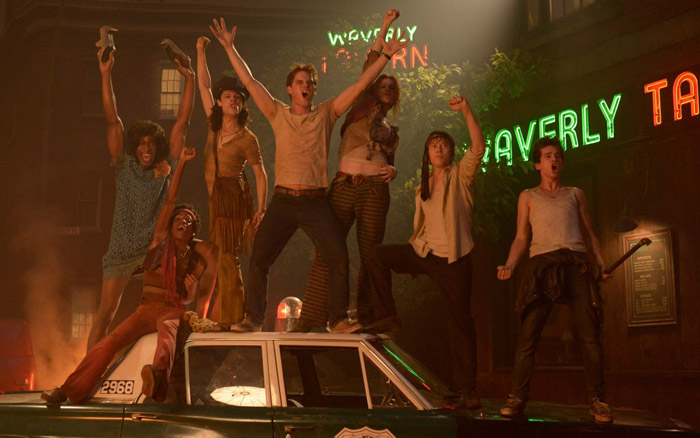The trailer for Roland Emmerich’s film, Stonewall, was released earlier this summer to a flurry of criticism over the blonde-haired, blue-eyed cis-gender boy it revolves around. Although the film attempts to authentically portray a dramatized version of one of the most significant events in LGBT history, it largely omits queer people of colour and transgender women, who in reality began and led the Stonewall Riots.
The trailer opens with flashy clips and audio from U.S. President Barack Obama’s 2013 inauguration speech mentioning “Seneca Falls, Selma, and Stonewall,” as defining moments in the fight for equal rights. Set in 1960s New York City, the plot revolves around Danny Winter (Jeremy Irvine), a fictional young gay man fleeing his homophobic Midwestern small-town life to follow his dreams in Manhattan.
The actual events of Stonewall and the subsequent protests follow a strikingly different path. It was, in fact, women such as Marsha P. Johnson and Sylvia Rivera—black and latina transgender activists, respectively—who first endured the police brutality and dehumanization that ignited the riots. At the time, the patrons of The Stonewall Inn—a gay tavern and recreational bar in New York City—were drag queens, butch lesbians, sex workers, and homeless youth—the vast majority of whom were people of colour. Because of the lack of legal protection for members of the LGBT community, the club was often subjected to police raids—but when one such raid became particularly violent, the community fought back, launching what is now considered the catalyst for the LGBT civil rights movement.
Miss Major Griffin-Gracy—a transgender woman of colour and influential activist who was clubbed by police before getting arrested during the first night of riots—said in a recent interview with Autostraddle that Stonewall’s storyline was “so disappointing.”
“How dare they attempt to do this again?” Griffin Gracy said during the interview. “A few years ago they did another Stonewall movie, and I swear if I saw a black person, it had to be a shadow running against the face of somebody who was white!”
Hollywood has a tendency to create films using this technique. Too often, stories about the struggles that minorities face are told through the manufactured lens of a white hero surrounded by white background characters. In the case of Stonewall, it is not just a matter of including more black and brown bodies in background roles to create a politically correct ratio, it is about an entire movement’s narrative being erased. Queer, and particularly transgender people of colour were not just fellow participants in the riots and protests, they were the catalyst for change, and their refusal to bend to forces of oppression sparked the organized fight for LGBT rights.
Various members of the LGBT community have spoken out in opposition to the film and an online petition to boycott the film has reached almost 25,000 signatures. The campaign website encourages people to speak out against the film because “it is time that black and brown transwomen and drag queens are recognized for their efforts in the riots throughout the nation.”
It is important to remember that movies and media influence society as well as erasing parts of history has consequences. Movies made for entertainment—even if made with the best intentions—are still created with bias. All this being said, only the trailer of Stonewall has been released.
“I understand that following the release of our trailer there have been initial concerns about how this character’s involvement is portrayed,” Director Roland Emmerich wrote in a public post on his Facebook page. “But when this film finally comes to theaters, audiences will see that it deeply honours the real-life activists who were there.”
It will ultimately be up to audiences to determine if that truly is the case.
Stonewall is scheduled to premiere on September 25.








